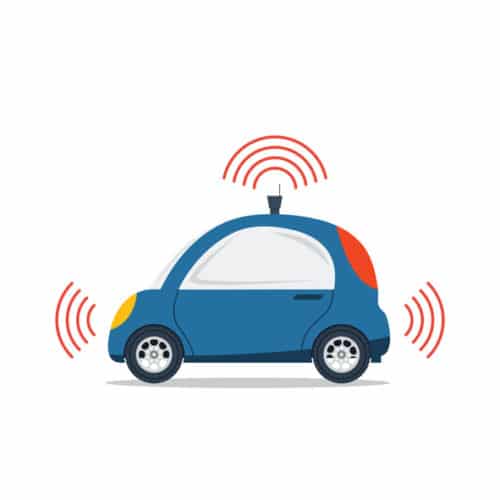Automated cars are the next big thing, but they can still cause serious accidents and injuries.

Self-driving cars are the wave of the future — but just because they’re on the road doesn’t mean that they’re perfectly safe, or that they can’t cause accidents. Recently, the National Highway Traffic Safety Administration (NHTSA) issued a press release about the federal policy for self-driving or automated vehicles. This policy should provide a framework for how self-driving cars can be safely manufactured and deployed on our roads.
The New Federal Policy
The newly-announced Department of Transportation policy will focus on key issues to ensure that automated cars are safe before they are on the road. The first step in approving cars for road use will be a 15 point safety assessment. This will guide manufacturers as they develop and deploy new technology in self-driving vehicles. The next step is building a consistent national framework to govern self-driving cars, so that the laws both exist and are similar across all fifty states and at the national level. Along with the new laws, the NHTSA will draft updated regulations to provide guidelines for the manufacture and production of automated vehicles so that the agency’s authority can keep up with changing technology.
Are Self-Driving Cars Safe?
Self-driving cars appear to be a recipe for disaster. How can a computerized vehicle respond to road conditions and other cars and trucks on the road? But in reality, the vast majority of accidents on U.S roadways are caused by human error. Approximately 94 percent of crashes are a direct result of either a mistake or choice made by a human driver. An automated car may actually reduce the number of preventable accidents, which will hopefully lead to a decrease in the number of accident-related injuries and fatalities each year.
Of course, technology has its limitations. There have already been a number of accidents caused by self-driving cars, including a recent crash in Florida that led to the death of a driver. We do not yet know how the introduction of self-driving cars will impact overall road safety; we can only speculate about whether these vehicles will increase or decrease the number of accidents on our roadways each year.
One advantage that automated vehicles have over human drivers is that they will not fall prey to some of the most dangerous types of unsafe driving behaviors that we see, such as impaired driving or distracted driving. A computerized car won’t be operating under the influence of alcohol or drugs, and it won’t be taking its “eyes” off of the road to read or send a text. But these cars will likely still need a degree of human control — and if the human co-pilot is impaired or distracted, then the self-driving cars may not be as safe as officials hope that they will be.
Ultimately, whether an accident is caused by a self-driving car or an old-fashioned human-driven car, the person or vehicle responsible for the crash should be responsible for whatever injuries are caused. An experienced personal injury attorney can evaluate the facts of each case, including the impact of a self-driving car on the accident, and determine whether there is a viable claim against the driver/owner, manufacturer or any other person or entity.
If you have been hurt in a car accident, the attorneys of the Law Offices of Larry H. Parker are here for you. We offer free initial consultations, and we never charge a fee unless we are able to recover money for you. Contact us today at 800-333-0000 or info@larryhparker.com to set up an appointment!



